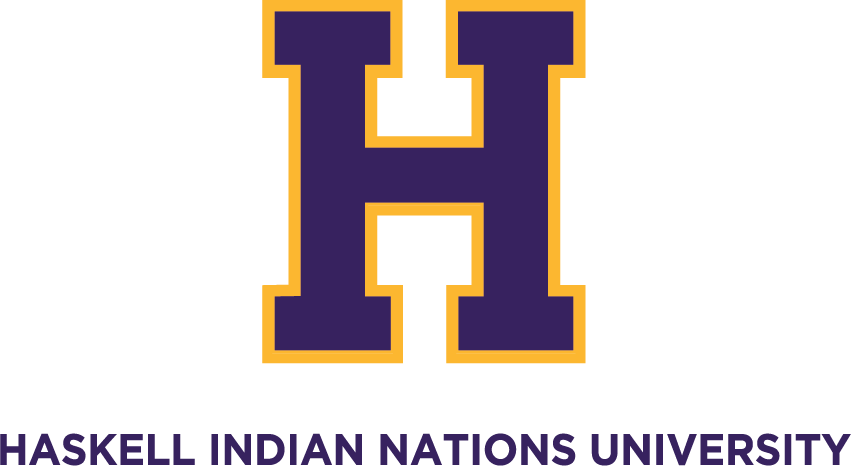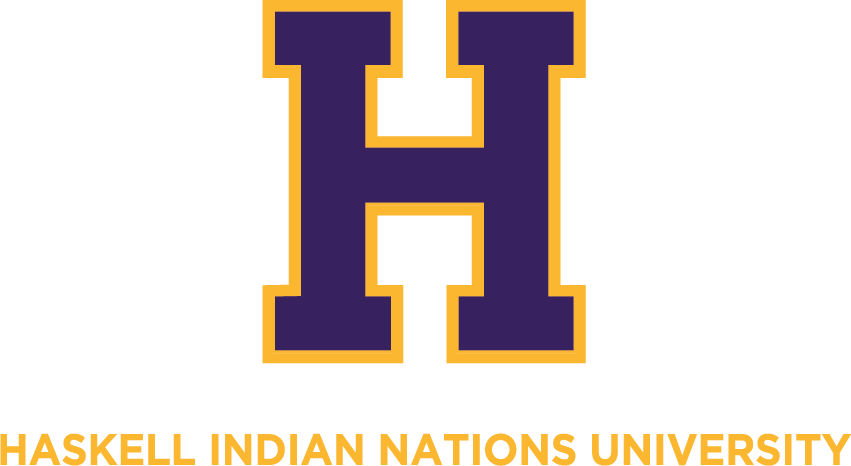Conceptual Framework
Conceptual Framework Model
The Haskell Memorial Arch, located on campus, serves as a model for the School of Education’s (SOE) Conceptual Framework (CF). This model illustrates the strong foundation of knowledge and skills needed to develop Native Leaders who become critical thinkers, high achievers, reflective practitioners, and caring leaders for tomorrow’s learners. This model symbolizes the importance of two main support systems; the mission and the vision, which are built upon high standards and accountability. The evaluation process includes a variety of assessment tools and practices with transition points throughout the program to monitor and enhance the candidate’s growth and development.
Conceptual Framework Components
The Conceptual Framework for Haskell Indian Nations University’s School of Education (SOE) includes three main components: the mission, the vision, and the evaluation process. These three components guide the operation of the Elementary Teacher Education Program (ETEP). Key defining elements are included to support each component. The SOE’s mission is characterized and supported by 12 Program Objectives and six Leadership Qualities. The first ten program objectives demonstrate our candidate proficiencies in the areas of content knowledge and professional skills with the last two addressing the specific values of the university. The six Leadership Qualities are aligned to our Institution’s Values that we expect our teacher candidates to exhibit (Dispositions). The SOE’s vision is displayed through the Elementary Teacher Education Program of Study. The SOE Evaluation Process includes scheduled meetings, teacher candidate monitoring procedures, and utilization of a variety of assessment tools and practices at varying transition points.
SOE Vision
Haskell Indian Nations University’s School of Education is dedicated to developing Native Leaders who are critical thinkers, high achievers, reflective practitioners, and caring leaders for tomorrow’s learners.
SOE Mission
Haskell Indian Nations University’s School of Education provides a quality Elementary Teacher Education Program grounded in traditional and contemporary American educational philosophies and theories, current best practices, and K-6 curriculum standards while integrating native and cultural perspectives to foster equitable learning communities for children.
Program Objectives/Candidate Proficiencies
To fulfill and support the SOE Mission Statement and Vision through extensive knowledge based research and current best practices, the SOE Advisory Board and SOE faculty have embraced the adoption and use of the ten Kansas Professional Education Standards as the Program Objectives. The Kansas State Board of Education (KSBE) adopted these revised standard in January 2015 as they were created to align closely with the ten INTASC Standards (April 2011). The Kansas Professional Education Standards (January 2015) are clearly divided and connected to the four categories: the learner and learning, content, instructional practice, and professional responsibility. Teacher candidates are expected to demonstrate target level performance of these candidate proficiencies in the process of becoming Native Leaders who are a critical thinkers, high achievers, reflective practitioners and caring leaders for tomorrow’s learners. Our teacher candidates will demonstrate these candidate proficiencies in both content knowledge and professional skills for each program objective. The teacher candidate:
The Learner and Learning
- understands how learners grow and develop, recognizing that patterns of learning and development varying individually within and across the cognitive, linguistic, social, emotional, and physical areas, and designs and implements developmentally appropriate, relevant, and rigorous learning experiences.
- uses an understanding of differences in individuals, cultures, and communities to ensure inclusive learning environments that enable each learner to meet rigorous standards.
- works with others to create environments that support individual and collaborative learning, includes teacher and student use of technology, and encourages positive social interactions, active engagement in learning and self-motivation.
Content
- understands the central concepts, tools of inquiry, and structures of the discipline(s) he or she teaches and creates content-specific learning and literacy experiences that make the discipline accessible and relevant to assure mastery of the content.
- understands the central concepts, tools of inquiry, and structures of the discipline(s) he or she teaches and creates content-specific learning and literacy experiences that make the discipline accessible and relevant to assure mastery of the content.
Instructional Practice
- understands how to use multiple measures to monitor and assess individual student learning, engage learners in self-assessment, and use data to make decisions.
- understands how to use multiple measures to monitor and assess individual student learning, engage learners in self-assessment, and use data to make decisions.
- understands how to use multiple measures to monitor and assess individual student learning, engage learners in self-assessment, and use data to make decisions.
Professional Responsibility
- engages in ongoing professional learning and uses evidence to continually evaluate his/her practice, particularly the effects of his/her choices and actions on others (learners, families, other professionals, and the community), and adapts practice to meet the needs of each learner.
- seeks appropriate leadership roles and opportunities to take responsibility for student learning, to collaborate with learners, families, colleagues, other school professionals, support staff, and community member to ensure learner growth and to advance the profession.
Institutional Core Values
- displays the ability to demonstrate confidence, pride, and commitment to the education profession by exhibiting the six Leadership Qualities identified in the ETEP.
- displays the ability to develop Native leadership and service to sovereign First Nations and the world through the integration of Native and cultural perspectives.
Professional Leadership Qualities
Haskell Indian Nations University’s ETEP believes essential leadership qualities are associated with becoming a Native Leader who is a critical thinker, high achiever, reflective practitioner, and a caring leader for tomorrow’s learners. These qualities are a combination of personal and professional skills as identified by the faculty and Haskell’s SOE Advisory Board as important teacher candidate dispositions. The identification of these Professional Leadership Qualities is based on the university’s Institutional Core values (CIRCLE) which were adopted in 2014 by the Board of Regents. The circle philosophy is symbolic of the medicine wheel, used to represent a range of tribal teachings, including concepts of balance, the sacredness of power in the universe and the spirituality and cultures of Native peoples. The School of Education used the University’s CIRCLE concept to develop dispositions expected from graduates.
The Leadership Qualities rubric is utilized to evaluate teacher candidate performance of the six identified leadership qualities. Haskell’s Teacher Education Professional Leadership Qualities are:
- Communication – to successfully convey ideas, opinions, information, results, or creative expression using multiple strategies.
- Integrity – to conduct ourselves in ways that honor the sacrifices of tribes on which treaty and trust responsibilities are based; and to carry out our responsibilities as students, staff, faculty, administrators and regents by engaging in actions based on the highest standards of conduct.
- Respect – to honor and promote the diversity of beliefs, rights, responsibilities, cultures, accomplishments of self and others, including our relations.
- Collaboration – the willingness and ability to work successfully with others in accomplishing the goals of the university, our students, the mission of Haskell and the tribes we serve.
- Leadership – the willingness to acquire the knowledge and skills required to advocate the sovereignty and self-determination of tribes, our university and the students we serve in a variety of diverse venues.
- Excellence – to strive toward the strongest level of accomplishment in our work, every facet of the university and community, as students, faculty, administration, and regents.
GOVERNANCE
The Elementary Teacher Education Program (ETEP) at Haskell Indian Nations University is governed by the divisional structure of the university. The School of Education, which is the unit, is responsible for developing curriculum and policies related to the ETEP. The School of Education (SOE) Advisory Board oversees and approves program policies and admission of students into the program. Significant policy additions or changes are vetted through the Faculty Senate’s Academic Standards Committee. The SOE Interview Committee for candidate applicants is comprised of board members, but may also include Haskell faculty, school principals, classroom teachers, program graduates, and current teacher candidates who are not board members, but have a stake in candidate selection. In addition, course approvals, changes to catalog course descriptions, and changes to programs are vetted through Faculty Senate’s Curriculum Committee. The Dean of Professional Schools who reports to the Vice President of Academic Affairs of the University supervises the School of Education faculty. Final authority regarding all issues related to the University lie with the President and/or Board of Regents.


